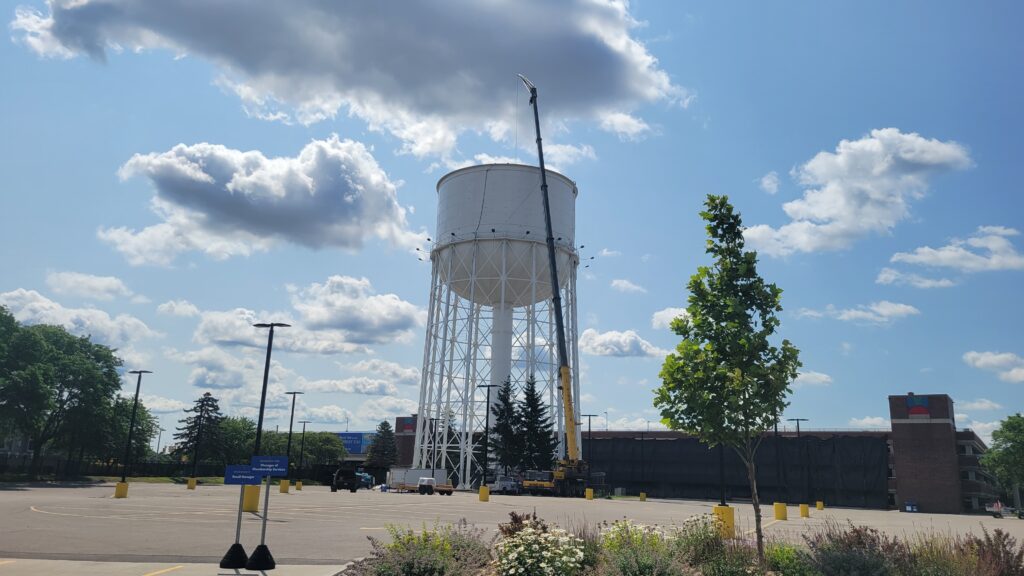Metro Detroit 2023 Real Estate Market Outlook
Metro Detroit, the 11-county region that encompasses the city of Detroit and its surrounding areas, is one of the most populous and diverse metropolitan areas in the Midwest. It is also home to a vibrant and resilient real estate market that has been showing signs of recovery and growth after the challenges of the past decade.
In this article, we will examine the current trends and projections for the real estate market in metro Detroit, based on the latest data and analysis from various sources. We will also highlight some of the opportunities and challenges that investors and homebuyers may face in this dynamic market. With the expected volume of activity it will certainly present some unique challenges for service providers and suppliers. Dumpster rental usage is expected to exceed these growth levels as regional construction and clean-up continue to grow. Businesses like Titan National are well positioned to capture the potential volume in waste management & recycling.

Future Detroit Real Estate Projections
According to Norada Real Estate Investments, a leading provider of turnkey investment properties, the metro Detroit real estate market is expected to see a robust expansion in the next year2. As of its baseline date on July 31, 2023, the MSA, represented by Detroit, MI, demonstrates a forecasted growth rate of 0.6% by the end of August 2023, followed by a further increase to 1.1% by the end of October 2023. Looking ahead, the market anticipates a projected growth reaching 4.9% by the conclusion of July 20242.
Current Real Estate Trends in Metro Detroit
According to Redfin, as of July 2023, the median sale price of homes in Detroit was $86,050, down 10.1% from the previous year1. This decline could be attributed to various factors, such as changes in the local economy, supply and demand dynamics, and overall market sentiment. Despite the decline, Detroit continues to offer affordable housing options for both buyers and investors.
The metro Detroit housing market is somewhat competitive, with homes typically receiving two offers on average and selling in around 34 days1. This is an increase from the previous year’s average of 28 days, indicating a slightly slower pace of sales. However, some homes may receive multiple offers, indicating pockets of high demand within the market.
The sale-to-list price ratio for all home types in metro Detroit is approximately 95.6%, indicating that homes are generally selling for about 5.4% below the list price1. This suggests that buyers have some room for negotiation in their favor. However, individual negotiations may vary depending on the property’s condition, location, and demand.
Detroit’s Real Estate Activity Impacts Dumpster Rental Volumes
This growth projection is based on various factors, such as population growth, job market recovery, income growth, low inventory levels, high rental demand, and favorable mortgage rates. The metro Detroit region is home to more than 300 municipalities and 300,000 businesses, including 11 Fortune 500 companies and numerous educational institutions3. The key industry clusters include automotive and mobility, defense, health care, information technology, and transportation, distribution, and logistics3. Managing this will involve numerous new construction, demolish and renovation projects throughout the region. Titan National is positioned to play a pivotal role in keeping projects on track and improving work site safety.
Opportunities and Challenges Facing Metro Detroit Real Estate
The metro Detroit real estate market offers many opportunities for investors and homebuyers who are looking for affordable properties with high returns and cash flow potential. The median rent price in metro Detroit is $1,200 per month1, which is higher than the median mortgage payment of $363 per month2. This means that investors can generate positive cash flow from renting out their properties.
Additionally, the metro Detroit region has a strong rental demand due to its large population of renters (40.9%) compared to homeowners (59.1%)2. The vacancy rate for rental properties is also low at 5.8%, indicating a tight rental market2. Moreover, the metro Detroit area has a diverse tenant pool consisting of young professionals, families, students, and retirees.

Significant Repair and Renovation Challenges Face Metro Detroit
However, there are also some challenges that investors and homebuyers may face in the metro Detroit real estate market. One of them is the quality and condition of the properties. Many properties in Detroit are older and may require significant repairs and maintenance. Investors and homebuyers should conduct thorough inspections and due diligence before purchasing any property.